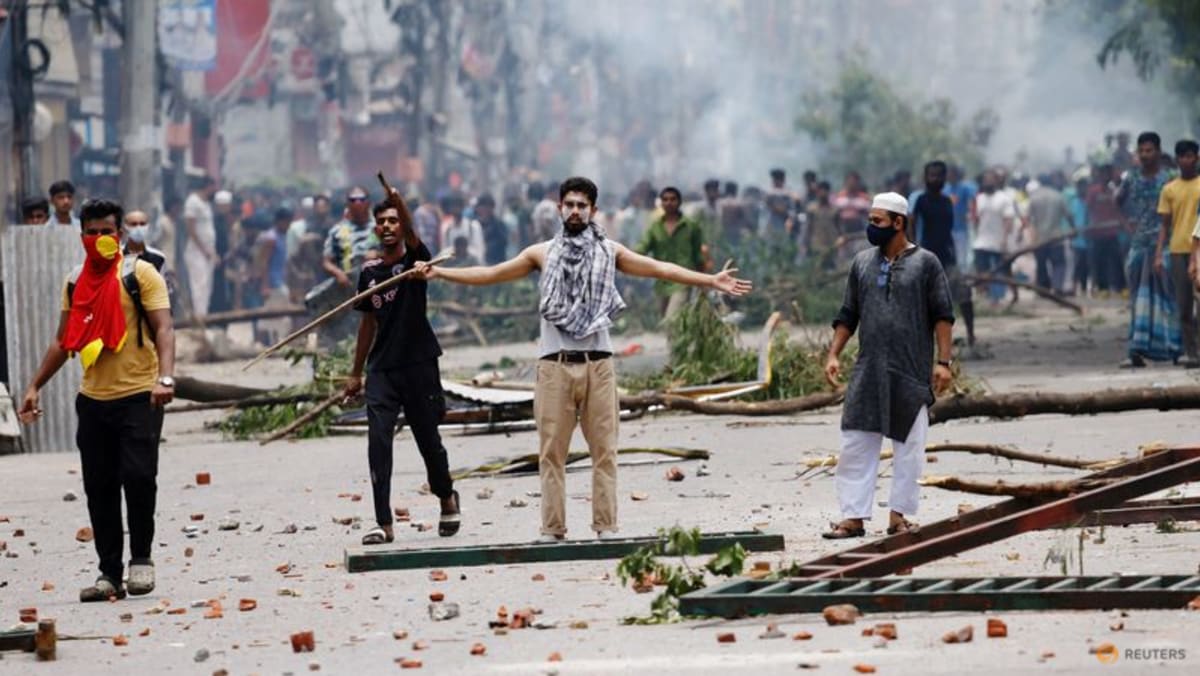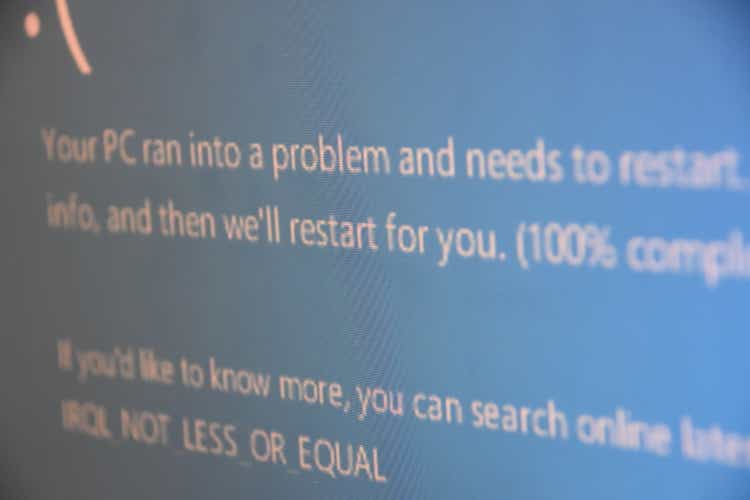The demonstrations – the biggest since Prime Minister Sheikh Hasina was re-elected for a fourth successive term this year – have also been fuelled by high unemployment among young people, who make up nearly a fifth of the South Asian nation’s 170 million people.
With the death toll climbing and police and other security forces unable to contain the protests, Hasina’s government imposed the national curfew and deployed the military.
The curfew was eased for two hours from noon on Saturday to allow people to shop for supplies and complete other chores, television channels reported. It will last until 10am on Sunday, when the government will assess the situation and decide the next course of action, the reports added.
STONES AND DEBRIS
Those venturing out on the streets had their identification cards inspected by army personnel at different check points, TV footage showed. Troops set up roadblocks and bunkers using sandbags across strategic locations of Dhaka, the centre of the protests.
Reuters TV footage showed armed soldiers surveying roads littered with stones and debris as shops remained shuttered. Trees and barricades were uprooted on streets where charred vehicles stood. Young men played football on a deserted road during the relaxation in the curfew.
Nationwide unrest broke out over student anger against the controversial quotas for government jobs, including 30 per cent for the families of those who fought for independence from Pakistan.
Hasina’s government had scrapped the quota system in 2018, but a court reinstated it last month. The state appealed against the reinstatement and the Supreme Court suspended it for a month, pending a hearing on Aug. 7.
In the central Dhaka district of Narsingdi, protesters stormed a jail on Friday, freeing over 850 inmates and setting fire to the facility, TV channels reported, citing police. Scattered incidents of arson were also reported on Saturday in some parts of the country.
Hasina dropped plans to leave on Sunday for diplomatic visits to Spain and Brazil due to the protests, the office of Foreign Minister Hasan Mahmud said.
Many opposition party leaders, activists and student protesters had been arrested, said Tarique Rahman, the exiled acting chairman of the main opposition Bangladesh Nationalist Party. Police arrested Nahid Islam, a leading coordinator of the students’ agitation, at 2 am on Saturday, the protesters said in a text message.
Reuters could not independently confirm the arrests.
Neighbouring India said nearly 1,000 Indian students have returned home through various land ports and flights since the violence began.
“The rising death toll is a shocking indictment of the absolute intolerance shown by the Bangladeshi authorities to protest and dissent,” said Babu Ram Pant, the deputy regional director for South Asia at Amnesty International, one of many rights groups that have criticised the government’s handling of the protests.
#Bangladesh #deploys #army #face #massive #job #quota #protests







